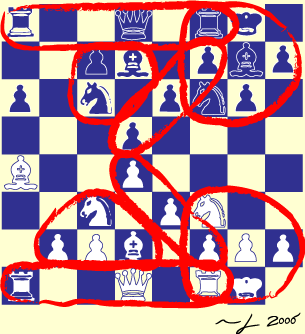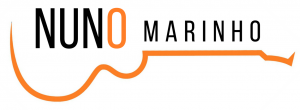A 2nd degree of Deep Practicing implies breaking the task into the smallest possible chunks. The former idea of Chunking is now taken into extremes.
While working on a piece of music, the deep practitioner will divide each musical bar and study it as a new and autonomous identity, randomizing the execution of the various bars which the piece is composed.
Each fragment can also be altered in to new rhythmic variations. The goal here is to enable the student to link the notes of unrelated series.
The 3rd degree of Deep Practicing comes in the form of slowing down the executions tempo of the task at hands.
For the aspiring virtuoso guitarist this one easily rings the bell. There is a consensus in the community everyone seems to regard: If you want to play faster bring the metronome down to the slowest possible tempo.
The glacial pace of execution is known to be extremely difficult to maintain, but the fact is that it brings perfection to the execution by putting aside shallower forms of practice.
Moreover, going slow allows you to attend more closely to errors, creating a higher degree of precision. This is what makes myelin grow: precision.
So, remember: It’s not how fast you can do it, it’s how slow you can do it correctly.
On the other hand, going slow helps the practitioner to develop a working perception of the skills internal blueprints: the shape and the rhythm of the interlocking skills circuits.
Observing, judging and strategizing one’s performance represents a crucial aspect in the skill acquiring process. Self-coaching (aka: “Self Regulation”) is a specific kind of learning and it can reveal the level of playing of each performer. Experts practice far more strategically. Failure is not a result of luck or something to blame on themselves. Experts built a strategy to practice and performer and when something fails they have tools to fix it.
Do mind that practice does not lead exclusively to skill acquisition. Practice goes beyond skill. Through practice, the experts develop detailed tools that allow them to control and adapt their performance, fix problems and respond to new situations.
To sum up, Deep Practice implies the following:
- The observation and imitation of the Masters and Expert Performers by grasping the object of study as a whole.
- The organization of the previous information into chunks that empower the practitioner with the ability to divide, autonomize and randomize its execution and, therefore, stimulate his own creativity.
- The development of a self-coaching consciousness (by slowing down the execution’s tempo) and the ability to correct errors, build precision and strategize performance to create a better response to different kinds of situations.
For more on the subject check “The Talent Code”, by Daniel Coyle



